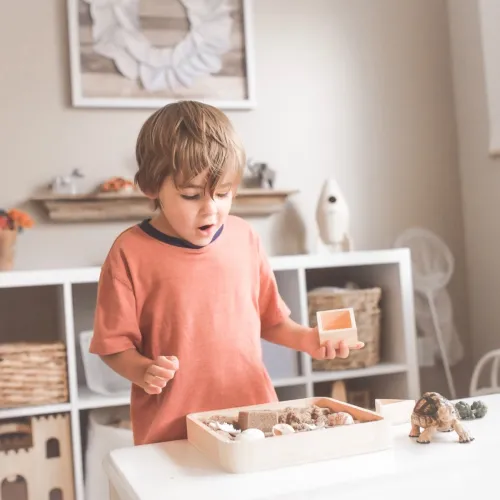What To Do After Separation

Separating from your current spouse or partner is a difficult decision to make. If you have children with your partner, the decision may be even harder to make.
For some, a separation may be a time to evaluate the relationship and gain perspective as to what it is like living apart from each other. For others, it may be the first stage of an impending divorce. Yet in any case, it's never easy.
What to Do After Separation
Depending on your situation, knowing what steps to take after separation might not seem so clear. If you and your co-parent have decided to separate with the potential of not getting back together, here are some issues that you should be thinking about.
Organise Your Living Situation
As part of a separation, one or both people will often move out of the home you once shared. Deciding who should move can be a difficult and painful decision to make, even if it seems clear from the start who it will be.
As tough as it is, determining who should move is something that should be decided sooner rather than later, as living together for an extended period after deciding to end your relationship can be uncomfortable and lead to more issues later on.
While both of you may be wanting to hang onto your family home, you and your co-parent must make an honest decision about what is best for both of you. One element that will significantly weigh on this decision is your financial status as a single individual versus as a couple.
Maintaining a home as a single parent can be very expensive. If you're not financially prepared to handle that responsibility on your own, it will likely be best to let go of the home and move to a place that you can afford.
If it does not make financial sense for either you or your spouse or partner to keep the home, you may both want to consider selling the property and looking for new, more affordable residences close to where you used to live.
If possible, try and stay in the same area that you had lived before to keep your children in the same school district and near the environment that they're familiar with.
If you do move out, but your spouse or partner remains in the home, don't forget to change your forwarding address on all of your important mail. Besides helping you to maintain some level of privacy after your separation, it will also help you and the rest of your family move forward.
Review your Finances and Assets
Part of what to do after separation will involve beginning the process of separating your finances and diving assets. This is particularly important if your separation will be permanent or lead to divorce soon after.
It may be a long process, but starting it sooner rather than later may help avoid conflict and other issues down the line. One way to begin this process is by addressing your shared bank accounts.
You'll want to have your own account that only you can access, and this may be where you want to have your personal funds and income forwarded to in the future. On the other hand, you may have a shared account that you wish to maintain for the time being. If that is the case, talk to your bank about adjusting the way that funds may be used from this account.
For example, you might set up the account so that all transactions from the account must require authorisation from both account holders. This will help make it so that neither of you can liquidate the account or use funds from it without the other person knowing. Along with thinking about your bank accounts, you will also want to think about any shared credit cards you have.
Again, you may cancel the credit cards or talk about what to do if you mutually decide to keep one or more of them active for some time. If you don't have a credit card with your name as the primary account holder, now is the time that you will want to open an account for yourself and build credit under your name. Work to build and maintain a good credit score for yourself, as doing so will make it easier to do things like buying a new home or even applying for rent.
Along with your finances, you must also consider dividing your assets. Try making a list of the significant assets that must be dealt with and note how you feel about each one. There may be some that you wish to keep more than others, but it is not likely that you will be able to keep everything.
As you consider each asset and you notice some that you both may want to keep, think about whether it's worth fighting for if it comes to it. Some level of compromise during this process will be necessary, so be prepared for it.
Your lawyer will be able to help you decide how best to protect yourself as you settle these issues. You may also consider attending mediation with your co-parent as you work out the details of dividing assets.
Talk to Your Children
Of all of the topics that you must consider as part of your separation, the decisions you make concerning your children are crucial.
Your children will be significantly affected by your separation. It is essential that you think about how you will talk to your children about what is going on and are ready to provide some answers to them.
You might not know all of the answers yet, but you should be able to tell them where they will be living right away. It will be best to make as few changes as possible to your child's daily routine, but if some significant changes must be made, be as prepared as possible with more answers to how things are changing.
As you talk to your children, keep your discussion age appropriate to help your children understand what is happening as best you can. Amidst all of the changes they are now experiencing, assure them that some things will not change such as the love you both have for them.
They will experience and express many different emotions, which is all to be expected. As parents, continue to offer your support and show your love to your children.
Even after you have broken the initial news to your children, it's important that they feel like they can keep talking to you about how this situation makes them feel. It might not always be easy to get them to talk about their feelings related to this situation, but positive support and encouragement can help.
You and your co-parent will have many decisions to make that will affect them in the long-term.
Along with deciding where your children will live permanently and how parenting time will be shared, you'll also have to think about things like how you will make big decisions for your children regarding crucial issues like medical care or education.
As you make each decision, think about how it will affect the well-being of your children. Also, try and come to these decisions as peacefully as possible, and if conflicts ensue, work hard to keep it away from your children.
Prioritise Self-Care
A separation is an emotional process that often leaves people feeling complicated emotions. Getting angry, shedding tears and feeling confused are just some of the many feelings you might be experiencing during this trying time.
All of this is to be expected, as the healing process is will be complex. Prioritising self-care during this time is key to help you heal and move forward.
Talk to friends and loved ones you trust. Take up writing in a private journal to express how you're feeling on any given day. Take care of your physical self by eating well and exercising. No matter how much you might feel like never leaving your bed, push yourself to face your emotions and to live.
What to do after separation is a question that many people ask themselves in this situation, and while each case is different, these are things that every person going through a separation should consider.
Along with these topics, speaking to a lawyer who practices family law in your state will also be helpful. Only a lawyer can advise you on legal matters pertaining to your separation, and they can also help guide you through the other issues that you should consider at this time.






